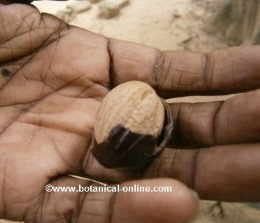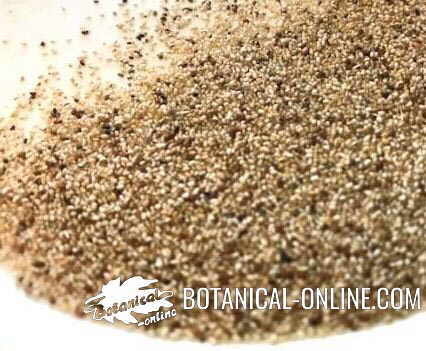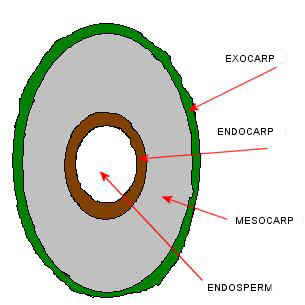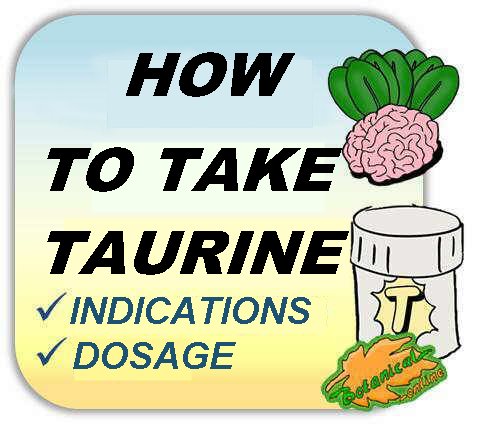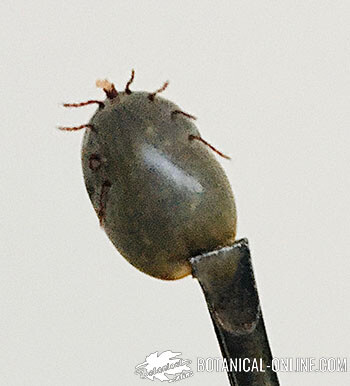Contents
- 1 How to treat depression with natural food
- 1.1 AMINO ACIDS FOR DEPRESSION
- 1.2 Tryptophan for depression
- 1.3 Phenylalanine for depression
- 1.4 Complex carbohydrates for depression
- 1.5 Omega 3 essential fatty acids for depression
- 1.6 Vegetable oils rich in omega 3
- 1.7 Omega 3 supplements for depression
- 1.8 OTHER VITAMINS FOR DEPRESSION
- 1.9 Vitamin B12 for depression
- 1.10 Vitamin B12 Supplements for Depression
- 1.11 MINERALS FOR DEPRESSION
- 1.12 Calcium for depression
- 1.13 GARLIC AGAINST DEPRESSION
- 1.14 SPICES FOR DEPRESSION
How to treat depression with natural food
AMINO ACIDS FOR DEPRESSION
Tryptophan for depression
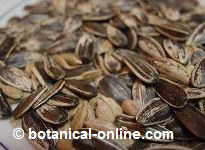 Sunflower seeds are very rich in phenylalanine and other essential amino acids that help the nervous system to function properly.
Sunflower seeds are very rich in phenylalanine and other essential amino acids that help the nervous system to function properly.Tryptophan is considered the best natural relaxant. It is the precursor of serotonin, a neurotransmitter. Some foods that contain this component are: garlic, onion, cashews, oats, cabbage, pumpkin, chestnuts, citrus in general, tomatoes, figs, mango, beans, and all legumes. Bananas are one of the richest fruits in tryptophan.
For non-vegetarians, this component is included in other foods, such as fish, chicken and turkey.
* More information: Foods rich in serotonin
You can also take tryptophan (5-HTP) supplements. It can be purchased at pharmacies or health stores. (The usual dose is about 100 to 400 mg daily. Take it as stated in the patient’s leaflet)
Phenylalanine for depression
Phenylalanine is another amino acid that helps against depression because it contributes to the production of the neurotransmitter norepinephrine. This component is found in foods high in protein, such as milk or dairy products, eggs and legumes (lentils, chickpeas, beans, soy, tofu, tempeh, peas, etc.). Non-vegetarians can eat meat, fish, eggs.
Complex carbohydrates for depression
Carbohydrates can play a very important role in controlling depression. The ingestion of complex carbohydrates calms the brain and provides greater peace for the whole organism. Complex carbohydrates are especially useful for treating some moments of depression, such as autumn depression or depression caused by premenstrual syndrome.
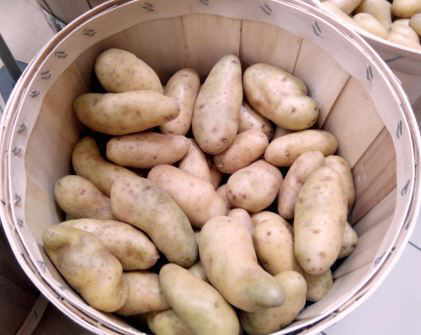 Potatoes provide complex carbohydrates
Potatoes provide complex carbohydrates
The main foods that contain complex carbohydrates are whole grains (wheat, oats, rice, etc.) legumes (beans, chickpeas, lentils, soybeans, peas, etc.), quinoa, vegetables (potatoes, onions, spinach, carrots etc..) And fruits (apples, pears, peaches, plums, etc.)
The reason for the calming effects of complex carbohydrates on the nervous system is due to its nutritional properties and its richness in group B vitamins.
Many of these foods, such as legumes and cereals, also contain tryptophan.
People who follow very low carbohydrate diets often experience insomnia, anxiety, stress or nervousness due to the lack of these foods.
Omega 3 essential fatty acids for depression
Some studies have concluded that intake of omega-3-rich foods may be appropriate for the treatment of depression. Intake of these fatty acids can help maintain mental balance and prevent depression or to improve or help in the treatment of diseases such as schizophrenia, hyperactivity or imbalances such as inattention.
These essential fatty acids can be obtained from the following sources:
- Blue fish: Contains two types of omega-3 fatty acids: eicosapentaenoic acid (EPA) – sometimes known as EPA – and docosahexaenoic acid (DHA) -. Fish oil is the richest in omega-3 fatty acids.
Omega-3 acid, called alpha-linolenic acid (ALA), must be converted to the EPA or DHA by the body to be exploited. In this transformation, the body only converts 10% of ALA to EPA and DHA. For this reason, fish oil is considered a more direct and better source for ingestion of this principle.
Vegetable oils rich in omega 3
Most plant foods containing omega 3 are vegetable oils.
Vegetable foods containing a higher proportion are linseed oil (cold pressure) (533 mg per 100 g), followed by canola oil (111 mg) or walnuts (104 mg), chia seeds, flax seeds or hemp seeds.
Other vegetable oils that contain omega 3 are: virgin olive oil, wheat germ oil or hazelnut oil.
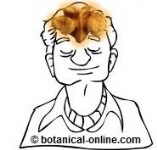 Walnuts are very rich in omega 3, choline and vitamin E, essential nutrients for the brain.
Walnuts are very rich in omega 3, choline and vitamin E, essential nutrients for the brain.
The vegetables that contain omega 3 are:
- Nuts such as walnuts, cashews or almonds.
- Avocado
- Soy
- Spinach
- Strawberries
- Cucumber
- Brussels sprouts
- Cabbage
- Pineapples
- Almonds
- Walnuts
Omega 3 supplements for depression
They is another way to add omega-3 fatty acids for people who do not take it from plant sources or do not eat enough fish. It can be taken as capsules containing fish oil, powder or linseed oil. (These products can be purchased at pharmacies or health food stores)
OTHER VITAMINS FOR DEPRESSION
Other vitamins of the same group that have been considered very useful are pyridoxine (vitamin B6) and cobalamin (vitamin B12). In general, foods rich in B vitamins, such as cereals, are considered very important for the proper functioning of the nervous system.
Vitamin B12 for depression
Cobalamin (vitamin B12) is very important for the nervous system. Cobalamin can be obtained from the following sources:
- Vegetable foods: Normally, a balanced vegetarian diet can provide the amount that is needed. Vegans or strict vegetarians (those who do not eat eggs or drink milk) should take cobalamin supplements. (Vegetarian people who do not eat enough animal foods should take supplements.)
* See: Vitamin B12 in vegetarians
- Food of animal origin: Foods containing vitamin B12 are lean meat, eggs, milk and their derivatives. Carnivorous diets usually meet the daily doses of this vitamin.
One of the richest in vitamin B12 are clams. The liver, brain or cow’s kidneys are the richest food after clams (85 g of cow’s liver contains 68 micrograms of vitamin B12).
The same amount is found in chicken liver. Some fish, such as tuna or sardines, are rich enough.
* More information: Food rich in cobalamin
Vitamin B12 Supplements for Depression
Intake of vitamin B12 supplements may be necessary in special circumstances where a diet can not not meet individual needs. In this sense, a daily intake of 100 to 400 mcg is recommended. (You can find this supplement in pharmacies and health food stores.) Take it according to the terms of the package leaflet.
* See: How to supplement vitamin B12
MINERALS FOR DEPRESSION
Calcium for depression
Among the main minerals with antidepressant properties we have calcium. Foods rich in calcium are vegetables such as garlic, onions, cabbages, fruits such as chestnuts, walnuts, coconuts, figs, apples, mangoes, bananas, avocados, almonds, etc.
Other minerals with antidepressant properties would be magnesium, potassium, selenium and lithium. (See foods rich in magnesium, foods rich in potassium)
GARLIC AGAINST DEPRESSION
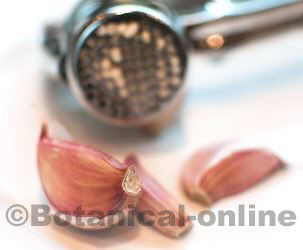 Garlic for depression
Garlic for depression
Garlic is very valuable for the treatment of depression. It is almost a compendium of all the major antidepressant components:
Garlic brings many substances that confer anti-depressant properties (ascorbic acid, magnesium, calcium, phenylalanine, tryptophan, potassium and selenium).
On the other hand, along with its ability to neutralize depression, its sedative components (caffeic acid, apigenin, geraniol, linalool and stigmasterol) will provide you with the reason why people who eat a lot of garlic generally feel very cheerful.
People who do not tolerate garlic can take onions, which are equally medicinal because they have the same principles.
SPICES FOR DEPRESSION
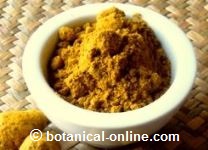 All scientific studies conclude that turmeric is a natural antidepressant, and can be used in people with depression, seasonal depression or affective disorders.
All scientific studies conclude that turmeric is a natural antidepressant, and can be used in people with depression, seasonal depression or affective disorders.
Turmeric is a widely used spice in oriental cuisine. It is recommended for depression.
Capsaicin is the spicy component of chili or cayenne pepper. Ingestion of chilli (Capsicum frutescens), a type of hot pepper (Capsicum annuum) or cayenne pepper increases peoples’ morale because it stimulates the production of endorphins, which are commonly known as “hormones of happiness “.
Ginger (Zingiber officinale) is also very rich in this component, so the fresh ginger root can also be added to our meals or infusions.
![]() More information on depression
More information on depression

